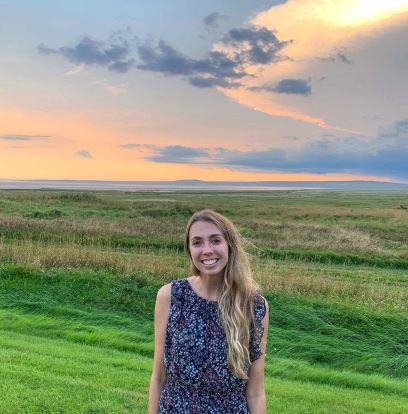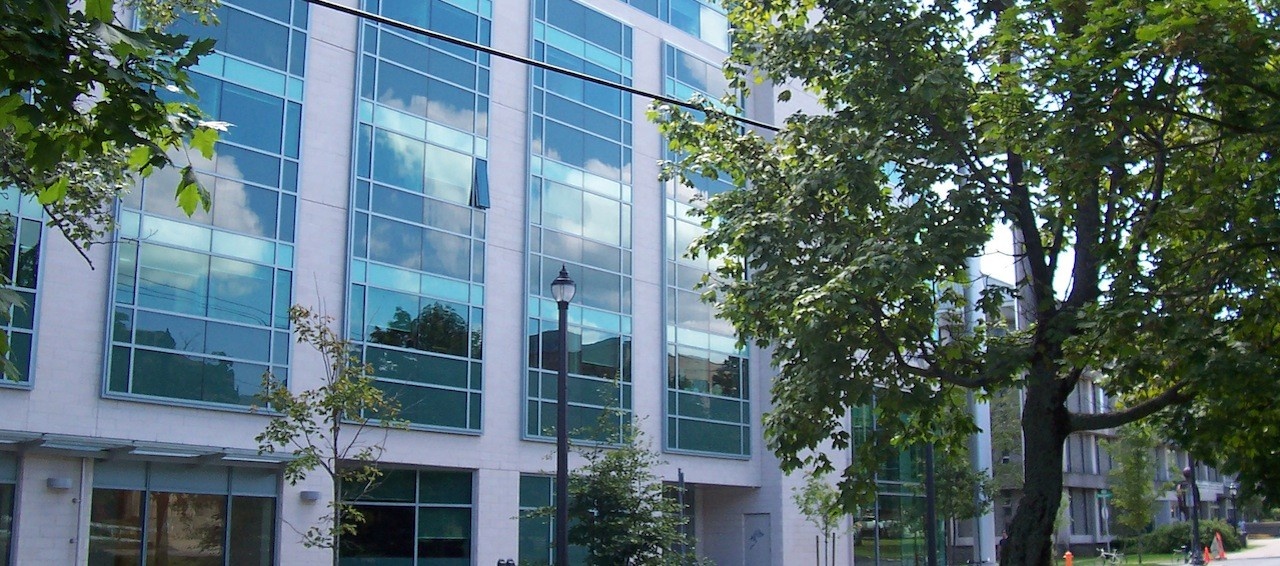Jessica Needham
 |
Program:Graduated from MES in September 2021 Current position:National Youth Engagement Coordinator at Ducks Unlimited Canada |
A Path to Impact: How SRES Shaped the Career of a Conservation Leader
In the dynamic field of environmental studies, the integration of interdisciplinary approaches is crucial for developing innovative solutions to global challenges. One recent graduate of the School for Resource and Environmental Studies (SRES) at Dalhousie University, now working as the National Youth Engagement Coordinator at Ducks Unlimited Canada, shares her journey and how SRES prepared her for a meaningful career in conservation.
Graduating in Fall 2021, she defended her thesis in August of the same year. Her research focused on transforming local knowledge into spatial data to inform conservation decision-making, specifically in the narrow land bridge area connecting Nova Scotia to the rest of North America. This region, crucial for terrestrial wildlife movement, was the subject of her work to identify high-priority corridors for protection. “We were trying to identify what areas need to be protected and conserved to maintain wildlife connectivity by using local knowledge inform us,” she explains.
Her path to SRES was somewhat serendipitous. While finishing her undergraduate degree in Environmental Science at Dalhousie, she became involved with SRES through a summer field technician position, assisting a current master's student with fieldwork. This opportunity ignited her interest in further research, leading her to apply for the master's program just two weeks before classes started. "It kind of started as this job and transitioned into a master's thesis last minute," she recalls, emphasizing the fortuitous alignment of her interests and the research opportunities available at SRES.
The interdisciplinary nature of SRES profoundly influenced her career. Her thesis work combined natural sciences and social sciences, employing technical GIS skills and community engagement techniques. This blend of disciplines prepared her well for her current role. “My master's work really let me have an opportunity here at SRES, and now I get to do that every day,” she says. Her role involves engaging youth in conservation decision-making processes, highlighting the importance of interdisciplinary skills in real-world applications.
On a day-to-day basis, she works with youth aged 18 to 25, creating opportunities for their involvement in Ducks Unlimited Canada’s conservation efforts. This includes developing a National Youth Engagement Plan, running a Youth Advisory Council, and implementing a nationwide network of campus clubs focused on conservation initiatives. “We're trying to find ways to get funding to youth to build their capacity to act for conservation, provide them professional development opportunities, and include their voices in decision-making,” she notes.
Reflecting on how SRES facilitated her transition from academia to the professional world, she underscores the practical experiences she gained. The combination of academic rigor and fieldwork, especially before the COVID-19 pandemic, provided her with a solid foundation. “Getting that practical in-the-field experience of working with the community and doing participatory mapping and community engagement was really key,” she explains. These experiences helped her develop the skills necessary for her current job, where she conducts focus groups with youth and speaks at national conferences.
The interdisciplinary learning at SRES was crucial for her development. She believes that understanding and integrating multiple perspectives is vital for effective conservation. “If you're not including different stakeholders in the work that we're trying to do and engaging with them early in the decision-making processes, then we're not going to have support to implement the things we want to do based on the science research that we're doing,” she emphasizes.
Her advice to current SRES students is to get involved as much as possible beyond coursework and thesis work. She highlights the importance of building collaborative skills through group projects and other external experiences. “All my work is so collaborative with so many different departments and co-workers. It’s a great skill to work collaboratively with people,” she advises.
Working at Ducks Unlimited Canada has broadened her perspective on environmental issues, particularly the importance of working with industry partners. “We have to work so closely with industries like forestry, oil and gas, and agriculture to push forward our conservation goals,” she notes. This experience has been eye-opening, showing her the value of collaboration with various sectors to achieve environmental objectives.
Looking ahead, she sees SRES alumni playing a pivotal role in addressing global environmental challenges. She acknowledges the diverse fields SRES graduates enter and the broad impact they can have. For her, the focus is on bringing diverse voices to the table and creating inclusive systems for decision-making. “I feel really well-positioned to help bring unique, underserved populations and voices to the forefront of decision-making in conservation,” she says, highlighting the ongoing influence of her education at SRES.
In conclusion, her journey from SRES to Ducks Unlimited Canada exemplifies the transformative power of interdisciplinary education in environmental studies. The practical skills, collaborative experiences, and broad perspectives gained at SRES have equipped her to make significant contributions to conservation and youth engagement. Her story underscores the vital role of institutions like SRES in preparing the next generation of environmental leaders to tackle the complex challenges of our time.
For more about where Jessica Works: https://www.ducks.ca/
